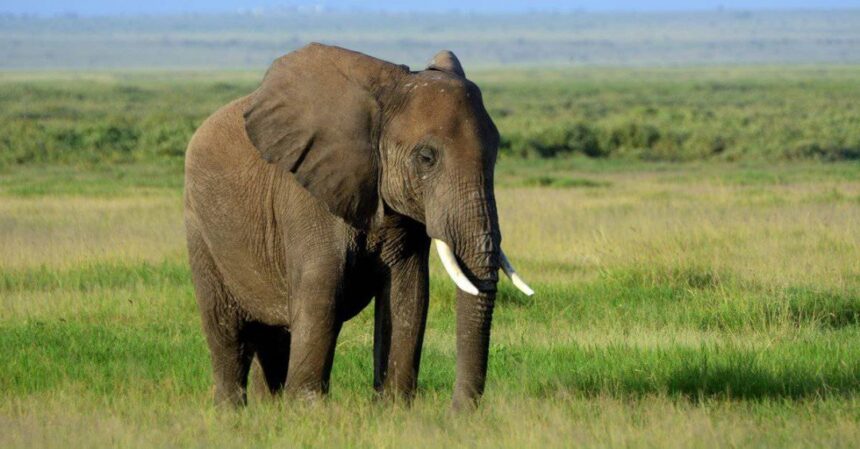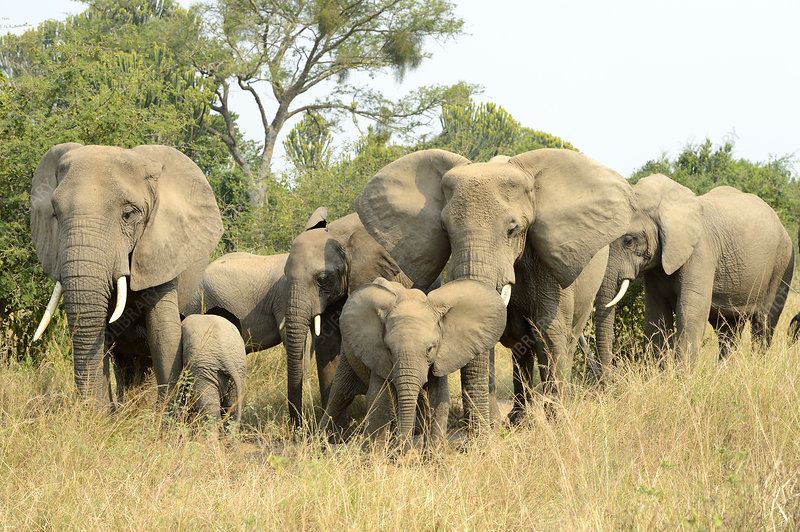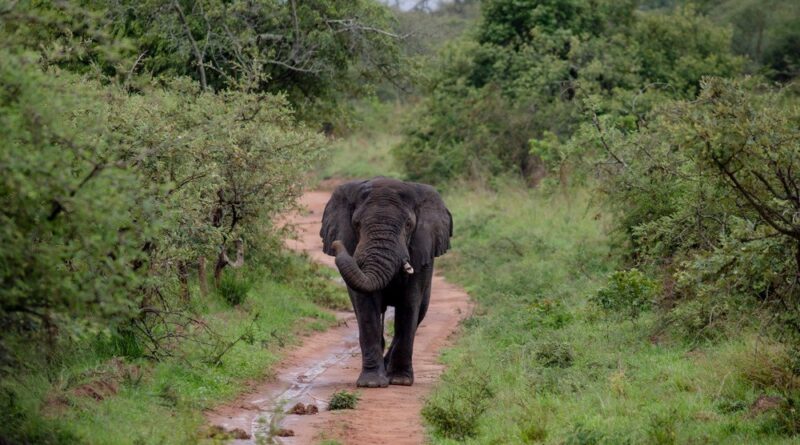Elephants: Unique animals with exceptional memory—Three times that of humans
Elephants are among the most visited animals by tourists and belong to the Big Five group, which includes lions, leopards, elephants, buffaloes, and rhinos. These animals have many unique characteristics.
Every year on August 12, the world celebrates International Elephant Day—a time to raise awareness about protecting elephants from harm.
Here’s what you need to know about elephants.

The Largest land animal
Elephants are the heaviest land animals. African elephants are the largest among them, with adults weighing between 1.5 tons and 12 tons.
The second heaviest land animal is the rhinoceros, which can weigh up to 4.5 tons. However, some fish species surpass elephants in weight, with certain fish reaching up to 18 tons.
Elephants Spend Most of Their Time Eating
Out of the 24 hours in a day, elephants spend about 20 hours eating. This is because they have a massive body mass that requires a lot of food. However, only about 40% of what they eat is digested, while the rest passes through their system undigested.
Elephants are herbivores, consuming up to 200-400 kg (440-880 lbs) of food daily and drinking about 200 liters (52 gallons) of water.
Sleeping Habits
Elephants sleep for only four hours a day. Out of these, about two hours are spent sleeping while standing, while the remaining two hours are deep sleep.
If elephants feel threatened, such as when they are hunted by lions or poachers targeting their tusks, they can go without sleep for up to 46 hours while fleeing.

Unlike many animals, elephants do not have a fixed shelter or nest; they sleep wherever they are when they feel the need to rest. Their grazing areas typically cover between 10 and 70 square kilometers.
Lifespan and Reproduction
Elephants can live up to 65 years.
While humans have a nine-month pregnancy, elephants have the longest gestation period of any land animal—about 22 months. According to Seaworld Parks, newborn elephants face a 30% risk of death in their first year due to accidents in the wild, predation, or poaching.
Exceptional Memory
Elephants have incredibly powerful brains. When someone has an excellent memory, people often compare them to elephants, and for a good reason. An elephant’s brain has a capacity three times greater than that of a human.
Graeme Shanon, an animal science professor at Bangor University, explains that an elephant’s memory is a key factor in its longevity. They can quickly recall dangerous situations or threats, which helps them survive.
Social Structure
Elephant families are matriarchal, meaning they are led by a dominant female.
When a male elephant reaches the age of 12 to 15, it leaves the family group and joins other males or lives alone. Sometimes, male elephants form temporary groups, but these are not permanent.
Dr. Winnie Kiiru, director of the Mpala Research Center in Kenya, states that the oldest female elephant usually leads the family. For a male elephant to challenge and take over leadership from a female, it must prove its strength and superior physical condition.

Elephant Tusks and Poaching
Elephant tusks, made of ivory, are highly valued, much like precious stones. Ivory is used to make jewelry, home decorations, and other items. Because of this, poachers kill elephants to harvest and sell their tusks at high prices.
The Elephant Trunk
An elephant’s trunk is one of its most distinctive features. Male elephants tend to have longer trunks, with some reaching up to 2.5 meters (8.2 feet) and weighing as much as 45 kg (99 lbs).
Declining Elephant Population
According to the World Wildlife Fund (WWF), in 1930, Africa had approximately 10 million elephants. Today, that number has dropped to around 415,000 African elephants, while the Asian elephant population is estimated at 40,000 to 50,000.
Elephants inhabit 23 African countries south of the Sahara Desert and 13 Asian countries.
The majority of African elephants are found in the Kavango-Zambezi Transfrontier Conservation Area (KAZA), shared by Angola, Botswana, Zambia, Zimbabwe, and Namibia.
Botswana has the largest elephant population, with about 130,000 elephants. In Rwanda, approximately 140 elephants reside in Akagera National Park.
Poaching remains a major threat to elephants, driving their population decline. To combat this, some countries have established special courts to prosecute wildlife crimes and protect endangered species.
Elephants Are Commonly Found in Africa
Elephants are a vital part of Africa’s biodiversity, playing a significant role in tourism, ecology, and conservation efforts. Their protection is essential to maintaining ecological balance and supporting sustainable wildlife conservation.

